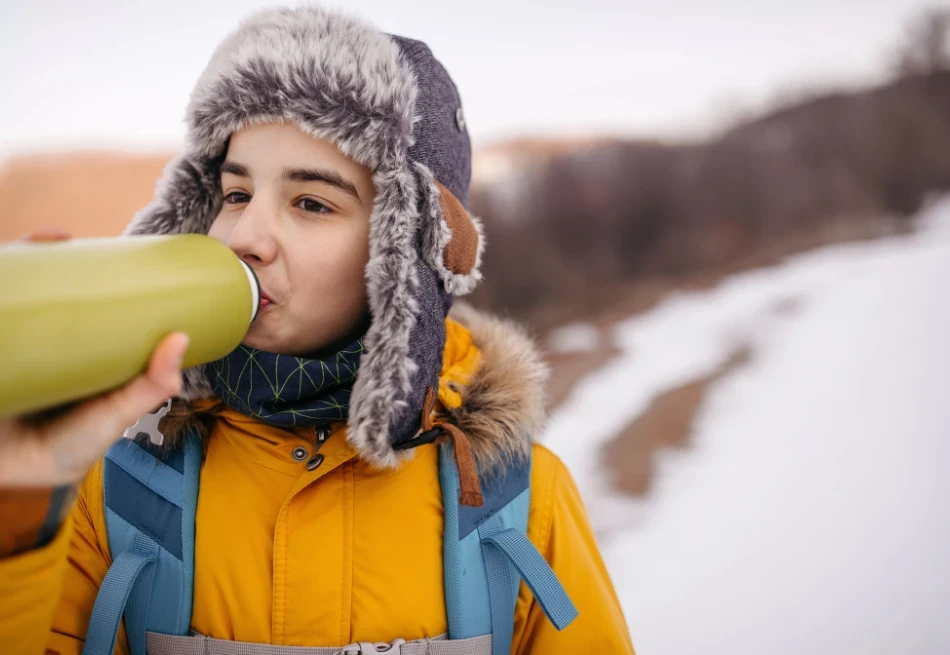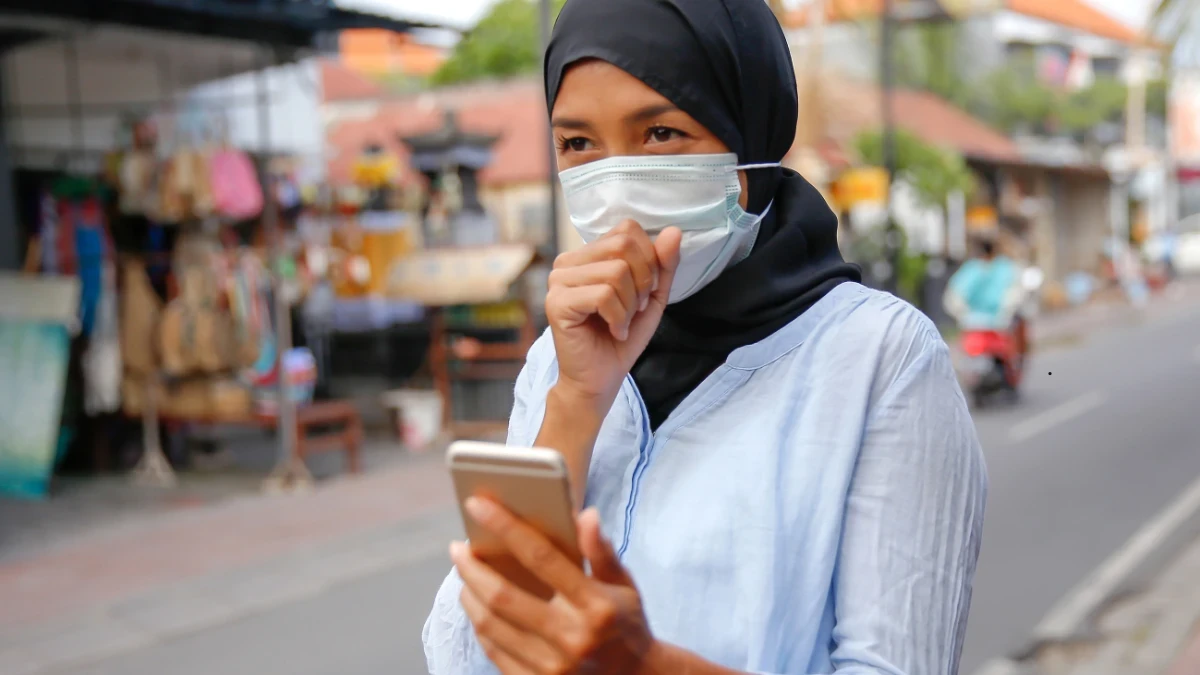Traveling can be an eye-opening experience, exposing you to new sights, cultures, experiences, and.. Illnesses!
Falling ill while traveling is more common among people than you think.
So, before you start criticizing your immunity system and decide to stop traveling altogether, allow us to explain why this happens.
This article outlines reasons why travel can sometimes result in illness and provides tips to help you maintain good health during your journeys.
Common Health Issues Faced by Travelers
Traveling often has its share of hiccups and doesn’t pan out to be as smooth as planned.
Sometimes even with all the tips and tricks, one cannot be insulated from health surprises.
Here are some common health issues faced by travelers:
Traveler’s Diarrhea
This condition is caused by consuming contaminated food or water.
Traveler’s Diarrhea is the most common illness associated with travel.
Symptoms include abdominal cramps, nausea, and frequent loose stools.
Jet Lag
This occurs when your body’s internal clock is out of sync with the new time zone.
Symptoms include lack of energy, sleeplessness, and trouble focusing.
Altitude Sickness
When going to high-altitude locations (above 2,500 meters), altitude sickness may occur.
Symptoms include headaches, nausea, dizziness, and shortness of breath.
Sunburn and Heat Stroke
Exposure to stronger sunlight and higher temperatures than you’re used to can lead to sunburn and heat-related illnesses.
Symptoms of heat exhaustion and heat stroke include nausea and vomiting, rapid breathing, high body temperature, headache, dizziness and fainting, racing heartbeat, etc.
Insect Bites
Mosquitoes, ticks, and other insects can transmit diseases such as malaria, dengue fever, and Lyme disease.
Symptoms can range from mild fever to severe joint pain and fatigue.
Motion Sickness
Common in travel by car, boat, or plane, this results from a disparity between visual movement and the vestibular system’s sense of movement.
Symptoms include dizziness, nausea, and vomiting.
Respiratory Infections
Air travel and crowded conditions can increase your exposure to respiratory pathogens.
Common complaints include throat infections, influenza, and common colds.
Allergies
New environments can expose you to allergens that trigger reactions, ranging from seasonal allergies to food allergies.
Water-Related Illnesses
Swimming in lakes and oceans is one way to come into contact with germs.
There may be skin rashes, ear infections, or even more serious illnesses like schistosomiasis.
Food Poisoning
Eating unfamiliar or inadequately prepared foods can lead to food poisoning.
Symptoms often include vomiting, diarrhea, and abdominal pain.
Why does it happen?
Understanding the cause of a health condition is always helpful in dealing with it better.
Here are a few common causes of travel-induced sickness:
Exposure to New Germs
When you travel, especially internationally, you bare yourself to a variety of new environments and germs that your body isn’t used to.
Airports, public transportation, restrooms, and tourist attractions are high-traffic areas where you are more likely to encounter new germs.
These unfamiliar bacteria and viruses can make your immune system vulnerable, leading to illness.
Disruption of Routine
Travel can disrupt your daily routine significantly.
Changes in diet, sleep patterns, and physical activity can all impact your immune system’s effectiveness.
For example, jet lag can disrupt your sleep schedule, leading to fatigue and lowered immunity.
Eating unfamiliar foods or overindulging can also upset your stomach and overall health.
Stress
Planning and executing a trip can be stressful, despite the excitement.
Stress triggers the release of the hormone cortisol, which, in high levels, can suppress the immune system.
Weakened immunity system makes you a potential target for infections.
The hustle of catching flights, navigating new cities, managing travel documents and budget can all contribute to shoot up stress levels.
Dehydration
Travelers often neglect proper hydration.
This happens more when they are busy exploring or if they are trying to minimize restroom breaks, like during long flights or road trips.
Air travel, in particular, is known for its dry cabin air which can precipitate dehydration.
Dehydration lowers the guards of your immune system and makes you more prone to catching colds or other illnesses.
Climate and Environmental Changes
Traveling to a destination with a different climate can also affect your health negatively.
For instance, moving from a mild climate to a tropical location might make you susceptible to heat exhaustion or sunburn.
Similarly, transitioning from a warm to a cold environment may raise the likelihood of hypothermia or frostbite.
Additionally, air quality and altitude can affect your respiratory system and overall health.
Tips to Stay Healthy While Traveling

There are many ways to take care of your health on the go.
Here are some tips to look after your health while traveling:
Prioritize Hygiene
Wash your hands regularly for 20 seconds wherever possible.
Carrying hand sanitizer or disinfectant wipes are highly recommended for situations where soap and water aren’t available.
When booking accommodations, don’t overlook cleanliness reviews and ratings.
A clean environment can significantly reduce the presence of infectious agents.
Minimizing face touching reduces germ transfer to vulnerable areas such as eyes, nose, and mouth.
To avoid cross-contamination, keep personal belongings like cups, utensils, and other items of such nature apart from other people when traveling in groups.
Stay Hydrated
Always have a reusable water bottle with you and refill it throughout the day.
Choose hydrating foods such as cucumbers, lettuce, oranges, and watermelon, which can help increase your fluid intake.
In cases of intense dehydration or when spending extended periods in extreme weather, consume electrolyte-containing drinks.
Limit beverages that can dehydrate you, such as those with high levels of caffeine and alcohol.
Eat Wisely
Eat freshly cooked foods and be cautious with street food or raw foods if you’re not sure about their cleanliness.
Opt for consuming food served hot and avoid raw vegetables and fruits unless you can peel them yourself.
Check labels or ask the vendor if the dairy is pasteurized, especially before consuming milk, cheese, or yogurt.
Always pick bottled water with an unbroken seal or hot beverages like tea or coffee prepared with boiled water.
Avoid using ice in drinks as it may be sourced from tap water.
Get Plenty of Rest
For your body to adjust and heal, make every effort to keep a normal sleep routine.
Reduce caffeine intake and avoid heavy meals before bedtime for a good night’s sleep.
Limit the use of electronic devices before sleep due to the disruptive effects of blue light on natural sleep patterns.
Stick to your regular pre-sleep routine as much as possible, such as reading a book, listening to soft music, or practicing deep breathing.
Maintaining a routine can signal to your body that it’s time to wind down.
Manage Stress
Plan ahead as much as you can and allow for some flexibility in your plans to reduce travel stress.
Before you travel, spend some time learning about your destination as it can greatly reduce anxiety.
Being away from home can sometimes contribute to stress.
Stay connected with family and friends through calls or social media.
Choose activities that suit your budget so that you don’t end up short on funds in an alien land.
Prepare for the Environment
If you’re going to a destination with a drastically different climate, you have to take some necessary precautions.
Make it a point of using sunscreen or wearing weather-appropriate clothing.
Always have your allergy medication handy.
